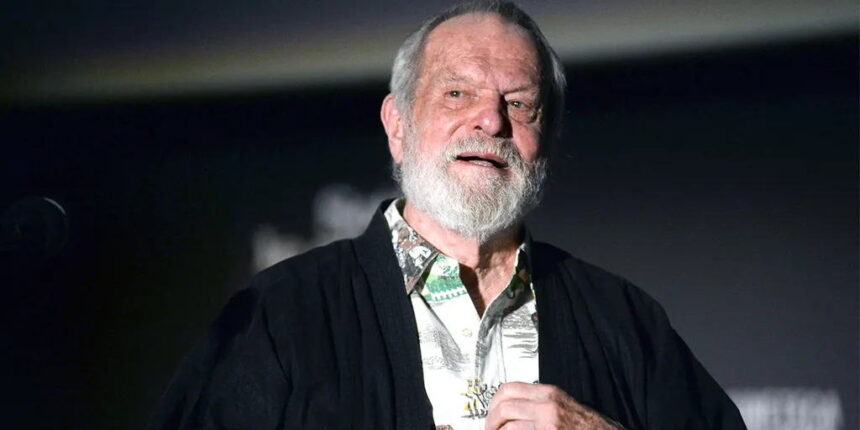Terry Gilliam has never been afraid of chaos. But now, it seems, even he's met his match.
In a darkly funny and revealing interview with The Hollywood Reporter, the Monty Python alum and cinematic surrealist claimed that Donald Trump has “fucked up” his next film—so thoroughly, in fact, that the entire script might need a rewrite. The movie in question? Carnival at the End of Days, a biting satire about God deciding to end humanity for wrecking the planet. It was shaping up to be classic Gilliam: bold, absurd, irreverent. And now? “Trump killed my movie,” he said. “He's destroyed satire.”
That's not hyperbole. Not from a guy whose career is built on twisting the absurd into prophetic mirror shards.
Let's rewind. Carnival was reportedly ready to roll. A stacked cast—Johnny Depp, Adam Driver, Jeff Bridges, Jason Momoa, Tom Waits, Asa Butterfield, Emma Laird—had signed on, or at least expressed interest. Many were even willing to work below their usual rates. And the script? “Very, very funny,” according to Gilliam himself.
But satire is all about timing. And Carnival may have missed its moment.
“Parts of it were very specific about the wonderful world of woke before The Donald took over again.”
There it is. Trump's resurgence in 2024 didn't just rearrange political reality—it derailed Gilliam's tone. What once read as biting social commentary now lands, perhaps, as toothless or stale. Or worse: confusing. You can't satirize a world that already feels like parody. And Gilliam knows it. He's even floated the idea of adding a preamble: “What you're about to see takes place during the period historians refer to as the Trump lost years from 2020 to 2024.”
It would be funny—if it weren't so accurate.
This is the trap, isn't it? Gilliam's been here before. He's battled studios, budgets, weather, horses, plague-level bad luck. (The Man Who Killed Don Quixote took nearly three decades to finish, and even then barely made a ripple.) But Carnival seems different. It's not just delayed. It's in danger of losing its soul.
Gilliam doesn't sound bitter, though. Not really. If anything, he's amused. Trump, he says, made it okay to laugh again—by breaking everything so thoroughly, people stopped pretending not to see the absurd. But there's a bitter note under the humor. “There have been woke activists with a very narrow, self-righteous point of view,” he said. “So many people have been very timid about telling jokes.”
He's no stranger to backlash either. A planned staging at London's Old Vic was canceled after pushback over his past remarks. Among the “offenses”? Defending Dave Chappelle's The Closer and saying he was “tired of white men being blamed for everything.” British media had a field day. One op-ed flatly told him to “grow up.”
But Gilliam's not backing down. If anything, he seems more reflective—like an old trickster god, watching as the circus burns and wondering if it's still worth the ticket price.
There's also the practical stuff. Carnival needs a big budget—more than $10 million, probably closer to double. And apocalypse isn't cheap, not even in indie film. Gilliam admits he bypassed agents and went straight to the actors himself. One insider reportedly warned: “Don't let anybody else read this in Hollywood. You'll never work again, mate.”
And yet—there's a weird hope in all of this.
Gilliam is 84. Most filmmakers his age are retired, revered, or simply ignored. He's still out here fighting to tell a story about God, humanity, and the end of the world—with Johnny Depp and Tom Waits in tow. That alone should count for something.
Will Carnival at the End of Days ever get made? Who knows. But maybe that's the wrong question.
Maybe the real question is: can satire still mean anything when reality outpaces fiction?
And if it can't… then what?











